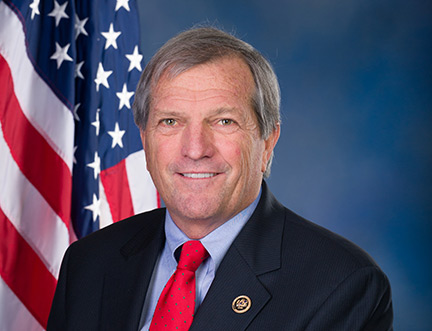Washington, DC — On Wednesday, Representatives Mark DeSaulnier (D-CA) and Ted Poe (R-TX), both cancer survivors and co-chairs of the Congressional Cancer Survivors Caucus, announced bipartisan legislation to help patients better navigate their cancer diagnosis.
The Cancer Care Planning and Communications Act (H.R. 5160) would improve doctor-patient communication by enabling doctors to bill Medicare for the time they spend developing comprehensive cancer care plans. According to a recent study cited by the National Institutes of Health only 45 percent of patients felt adequately informed about their cancer diagnosis.
“Medical breakthroughs are at an all-time high, but advancements in doctor-patient communications are not keeping pace. We know that less than half of all cancer patients feel adequately informed about their diagnosis. Without a written plan explaining treatments and expected symptoms, patients are often left with more questions than answers. As a cancer survivor, who is grateful to have a healthy and full life ahead of me, I hope that my experience and this legislation will help others better navigate a diagnosis,” said Congressman Mark DeSaulnier.
“Cancer is an epidemic in our country. Approximately 1.7 million Americans will be diagnosed with cancer this year alone. As a cancer survivor myself, I know how difficult it can be to understand what the plan for a patients’ treatment is,” said Congressman Ted Poe. “This legislation takes a positive step forward by incentivizing doctors to help their patients understand their planned cancer care path and giving them the peace of mind, all cancer patients, and their families deserve.”
“The Cancer Care Planning and Communications Act is a tangible way to significantly improve the quality of care for cancer patients in Medicare,” said National Coalition for Cancer Survivorship CEO Shelley Fuld Nasso. “Care plans before, during, and after treatment encourage communication between providers and patients, and help alleviate some anxiety at every phase of the care continuum. The CCPC Act would empower patients with tools to manage and coordinate their care from active treatment throughout survivorship. NCCS and our partners look forward to working with Reps. DeSaulnier and Poe to move the CCPC Act forward.”
“We commend the Congressional Cancer Survivors Caucus co-chairs for advancing this important legislation,” said CEO and Executive Director of the Inova Schar Cancer Institute, Donald L. Trump, MD, FACP. “The data show clearly that personalized and coordinated care leads to better outcomes – including longer survival. Cancer care is more and more complicated – and successful; it is critical that physicians and patients be full partners in their treatment, that the overall plan of treatment and post-treatment care be fully developed and communicated – that’s what the Cancer Care Planning and Communications Act is promoting.”
The complete list of supporting organizations includes: American Society for Clinical Oncology; American Cancer Society Cancer Action Network; Association of Community Cancer Centers; CancerCare; C-Change; Cancer Support Community; Comprehensive Cancer Center of Wake Forest University; Dan L. Duncan Cancer Center, Baylor College of Medicine; Dana-Farber Cancer Institute; Fight Colorectal Cancer; Herbert Irving Comprehensive Cancer Center at Columbia University; International Myeloma Foundation; Kidney Cancer Association; Leukemia & Lymphoma Society; LIVESTRONG Foundation; Lymphoma Research Foundation; Markey Cancer Center at University of Kentucky; Masonic Cancer Center, University of Minnesota; National Coalition for Cancer Survivorship; National Comprehensive Cancer Network; National Patient Advocate Foundation; Ovarian Cancer National Alliance; Prevent Cancer Foundation; Purdue University Center for Cancer Research; Susan G. Komen; UAB Comprehensive Cancer Center; University of Arizona Cancer Center; University of Kansas Cancer Center; West Virginia Oncology Society.

